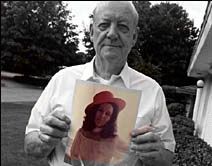OKLAHOMA CITY (AP) --
Death has proved no obstacle to Jacquelyn Ledgerwood's
campaign for the U.S. Senate.
 The 69-year-old homemaker from the town of Norman died
of a heart attack July 15 but managed to get enough votes
in the August 25 Democratic primary to advance to a two-
person runoff for the nomination on Tuesday.
The 69-year-old homemaker from the town of Norman died
of a heart attack July 15 but managed to get enough votes
in the August 25 Democratic primary to advance to a two-
person runoff for the nomination on Tuesday.
The way Oklahoma's attorney general reads the law,
Ledgerwood's name must remain on the runoff ballot, and
if she wins, she will be the party's candidate in November
against three-term Republican Sen. Don Nickles.
Ledgerwood's family, meanwhile, has all but invited
people to vote for the dead woman.
"Perhaps the achievement of Jacquelyn Morrow
Ledgerwood's purpose of spiritual renewal in running for
the U.S. Senate is not dead and can still be attained with a
win in the runoff and a miracle victory in the general
election November 3," the family said in a statement.
The situation is "rather strange, and it's sad, too," says
Ledgerwood's runoff opponent, Don Carroll, a
40-year-old air conditioning repairman who was the top
vote-getter in the primary.
He says he won't be embarrassed if he loses to a dead
woman: "If you're going to be embarrassed, you better not
be in politics. You just have to take it as it comes."
Ledgerwood died after the deadline for removing names
from the primary ballot had passed. Her second-place
finish in the four-way contest has been attributed to
everything from voter ignorance to the fact that she was
the only woman in the race and had an especially long
name: Jacquelyn Morrow Lewis Ledgerwood.
No one, dead or alive, is given much of a chance of
beating the popular Nickles. But if Ledgerwood were to
win, Gov. Frank Keating would have to call a special
election to fill the seat.
A dead person has never been elected to the Senate,
according to Betty Koed, a Senate historian in
Washington. The U.S. Constitution doesn't address the
question.
"I don't think anyone foresaw that," Koed said.



